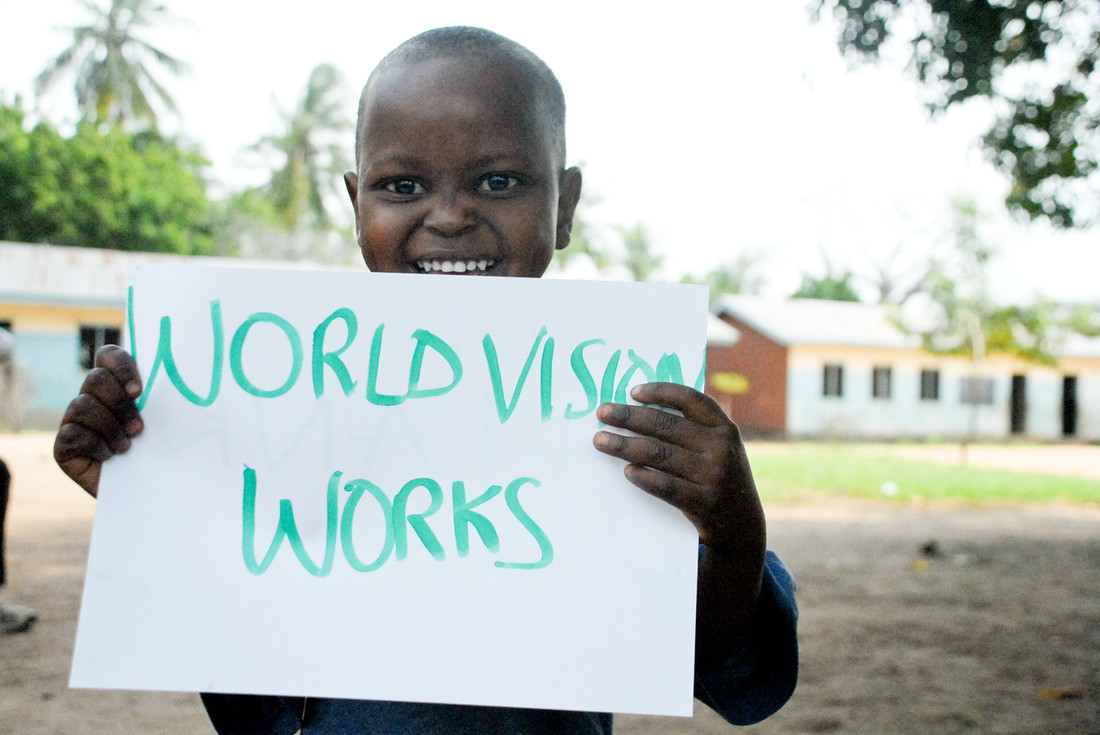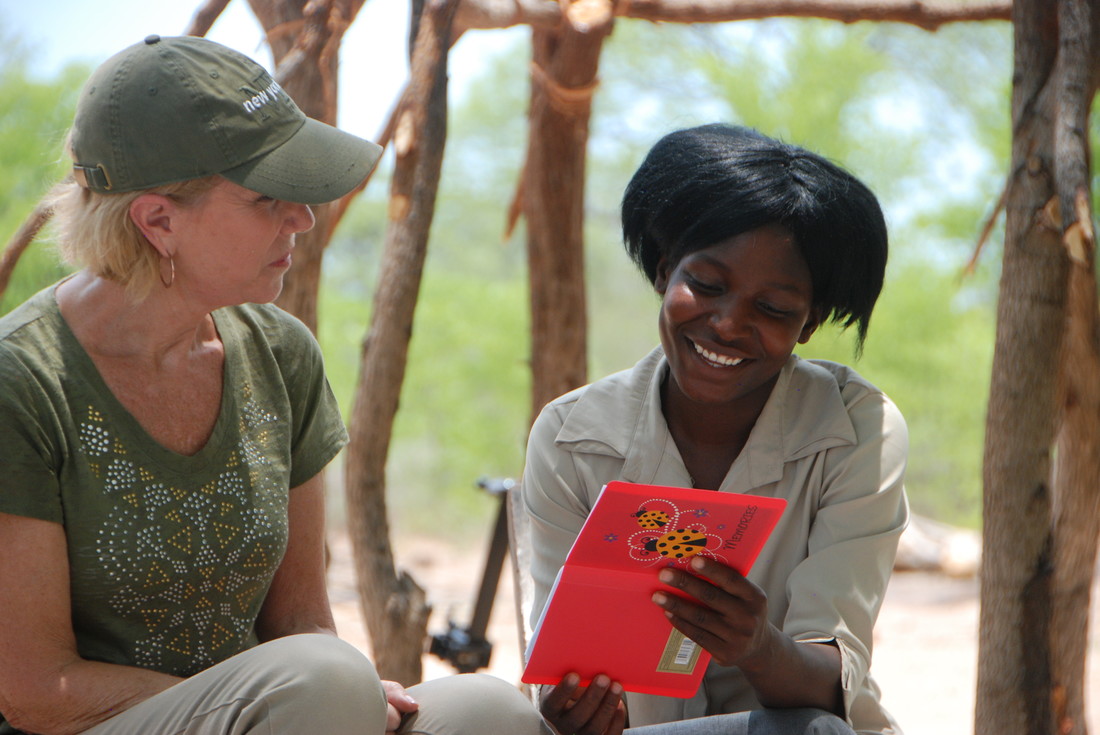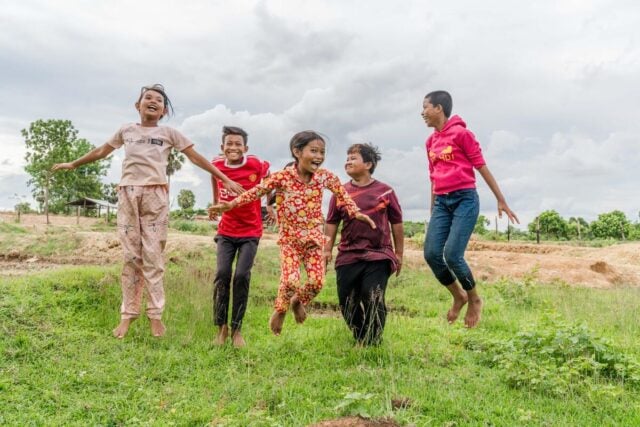
Recently I saw a picture of a smiling child holding a sign that read, “World Vision works.”
Silly as it sounds, my eyes filled with tears as the power of that simple statement hit me. Despite all the challenges, pitfalls, and overwhelming demands of the work God has called us to do, World Vision makes a profound difference in the lives of millions of children like that little boy every single day. And as improbable and impractical as some may think it is, we still do it “one child at a time” through a 62-year-old program called sponsorship.
Shortly after I started working for World Vision in 2001, I struck up a conversation with a gentleman in an airport. When he learned that I worked for World Vision he said, “World Vision is a great organization, but I just don’t understand why you waste all that money on sponsorship. It’s got to be expensive to keep track of all those kids and donors. Wouldn’t you save a lot of time and money if you just did community development and stopped making it about one child?”
His question took me by complete surprise. I had never met a person who challenged the value of sponsorship, and for a second I wasn’t sure what to say. The man was obviously a businessman, and from a strictly financial position, he was probably right.
“You must not be a World Vision sponsor,” I remember saying carefully. “If you were, you’d know that the difference sponsorship makes can’t be fully measured in dollars and cents. Connecting a child with a caring sponsor is at the heart of what we do in our community-based ministry, and if we ever stopped, well, we might save money, but we wouldn’t be World Vision.”
My father, World Vision founder Bob Pierce, called sponsorship the “widow’s mite” — that small monthly gift which is often given by those who can least afford it. Of course, in 1953, when World Vision child sponsorship began in Korea, it only cost $10 to help feed, clothe, educate, and provide medical care for a child orphaned by the war.
Over the next decade, thousands of sponsors watched their children grow up through the pictures they posted on their refrigerators. Wide-eyed babies became shy grade-school children and then serious-faced teens, who posed proudly in their school uniforms.
The children on these refrigerators became doctors, lawyers, teachers, pastors, and businessmen. Their generation rebuilt Korea into one of the wealthiest nations in the world — 13th in gross domestic product. Today, Korea is our third-strongest donor nation, helping others as they were once helped.
The heart connection between a child and a donor is life-changing for both.—Marilee Pierce Dunker
This brings me back to my skeptical friend’s question about the wisdom of investing so much money into something as complicated and work-intensive as sponsorship. Is it still a practical and effective fundraising tool for a sophisticated, multi-billion-dollar organization like World Vision?
Amazingly, the answer to that question is a resounding YES! Our most recent financial report shows that while World Vision U.S. offers dozens of amazing and effective ways for donors to give, nearly two-thirds of our annual income still comes from those who faithfully send in their $35 each month. The heart connection between a child and a donor is life-changing for both, and I believe the prayers and words of encouragement that are spoken over these young lives are every bit as important to their future and well-being as the checks that are written. And by pooling that “widow’s mite,” World Vision ensures that sponsored children grow up in communities that, thanks to their sponsors, enjoy clean water, access to health care, better schools, improved harvests, and stronger churches — changes that will benefit generations to come!

But there is another “price tag” to sponsorship that is rarely talked about. It is the high personal price our World Vision staff in the field pays as they are charged with checking on each child in a sponsorship community to make sure they are healthy, educated, experiencing the love of God and neighbors, protected, and participating in community life. These are the men and women who generate the reports sponsors receive and who make sure that children get the precious letters and gifts sponsors send. All this individual attention comes at a price, and it never ceases to amaze me how those whom God calls to World Vision are willing to pay the bill.
I wish I could have introduced my skeptical friend to Robert, one of our child sponsorship specialists working in a remote part of Kenya. It was after 9 at night when he walked wearily into the World Vision compound where I was staying. He was hungry, tired, and covered with dust from riding his cycle for more than 12 hours to reach the children on his list. As he sipped a cup of coffee, we talked, and I asked him if every day was as long and hard as this one.
“No, not every day,” he answered. “But it is a more demanding job than I expected. I have only been here a few months, and I am just getting used to the long days.”
“So why do you do it?” I asked. His reply warmed my heart.
“When you spoke to the staff a couple days ago you talked about being ‘called’ to World Vision,” he began. “I honestly wasn’t sure what you meant by that. But then I began to think about how I came to World Vision. I graduated from university with honors, and all I wanted to do was get a good-paying job. I heard that World Vision was a good place to work, so I applied without any idea of what the work would require. The first weeks here were hard! I was tired all the time, and I wasn’t sure I would be able to do it.
“But today, after I finished my rounds, I took food to a family that is struggling. The father is sick and can’t work in the fields, so the children were not getting enough to eat. When they saw the food I was bringing, the mother cried and hugged me. She insisted that I stay and eat with them, which is why I am so late. As I watched the little ones eat, I realized that God had used me to answer their prayers, and I knew that this is what I want to do with my life. So, to answer your question, I guess I am here because I am ‘called.’”
He finished with a grin.
Robert’s story is only one of the dozens of similar staff testimonies I have heard throughout the 14 years I have traveled with World Vision. To say that maintaining our sponsorship program is work intensive is putting it mildly. But it is also life-giving to both those who give and those who receive.
Looking at the picture of that little boy holding his sign, the answer to the question as to why World Vision still does sponsorship after all these years is easy.
Because it works!

Marilee Pierce Dunker travels the world as an ambassador for World Vision, the organization her father, Bob Pierce, founded in 1950. Like he did, she shares stories, pictures, and personal reflections, bearing witness to the extraordinary ways God is using his people to share the gospel and care for the poor.
Visit World Vision’s Speakers Bureau site to request Marilee or another World Vision speaker to present at your upcoming event.

